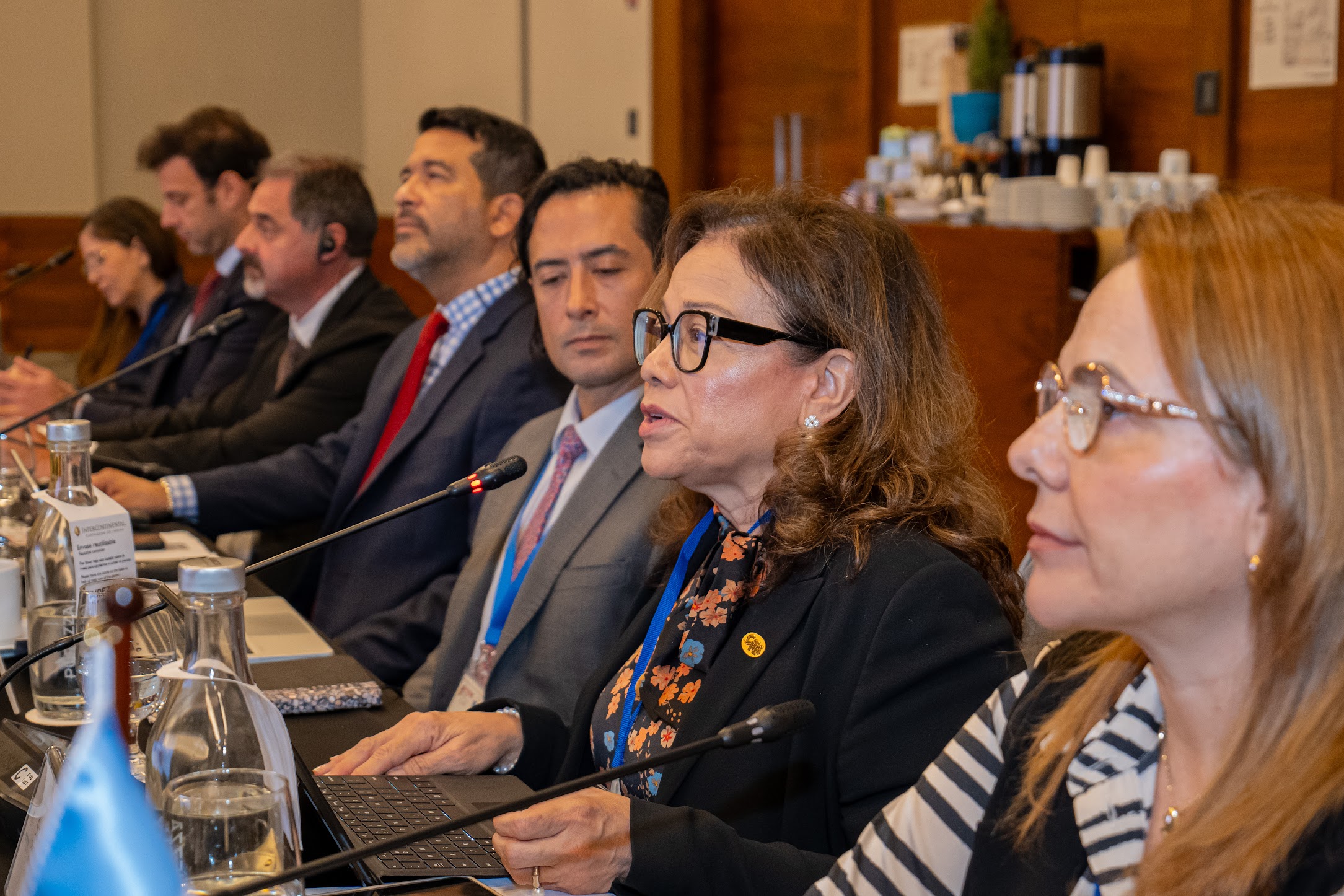2nd Combating Illicit Trade Summit of Customs Directors-General, Americas Region
Opening Remarks by CITES Secretary-General Ivonne Higuero
8 April 2025, Cartagena, Colombia

Excellencies,
Distinguished delegates,
Guests and participants,
Ladies and gentlemen,
It is my great honour to address you today at the ‘Second ‘Combating Illicit Trade Summit of Customs Directors-General’. Having the opportunity to speak to so many Customs Administrations from the Americas is truly invaluable.
I would like to begin by expressing my sincere thanks to Colombia’s National Tax and Customs Directorate (DIAN) and TRACIT. Thank you for hosting this event and for inviting me to speak to you today.
Over the coming days, this Summit will provide a crucial opportunity for us all to reflect on the challenges posed by transnational organized crime. Likewise, we will be able to consider how we can further enhance our collective and collaborative efforts to effectively combat it. There is no doubt that Customs administrations are a key partner in the global efforts of CITES. Indeed, they are the primary enforcers of the Convention on International Trade in Endangered Species of Wild Fauna and Flora (CITES), facilitating legal trade in CITES-listed species. Similarly, at the borders, customs administrations help us to eradicate illegal wildlife trade.
Now allow me to speak to you about CITES. For 50 years, this legally binding treaty has been the principal international mechanism for regulating the international trade in wild animal and plant species. Its aim is to ensure the survival of wildlife.
CITES currently regulates trade in more than 40,000 species. This is achieved through a permit system implemented by the national Management Authorities of the 185 Parties to the Convention, which work together to ensure that trade is legal, traceable and sustainable.
In this context, CITES plays a key role in combating wildlife crime as part of the broader spectrum of transnational organized crime. Wildlife crime threatens many species and undermines global conservation efforts. They also fuel corruption, destabilize economies and pose security risks.
Combating wildlife crime remains a global challenge. Thousands of wild species covered by CITES are affected by wildlife trafficking. Some of the most affected receive little public attention, such as succulent plants and fish.
Last year, the third edition of the World Wildlife Crime Report was published. This report showed that illegal trade took place in 162 countries and territories between 2015 and 2021, affecting some 4,000 species of plants and animals.
Latin America is home to 40% of the world's biodiversity, including unique ecosystems such as the Amazon rainforest, the Pantanal and the Andes. But with such rich biodiversity comes vulnerability. Indeed, this region has become a major source and transit hub for the illegal trade in wildlife, including marine species and timber.
Significant steps have been taken at the global level in recent years. In 2021, the United Nations General Assembly adopted a Resolution on “Combating Illicit Trafficking in Wildlife”, which reaffirms and builds on other Resolutions on this topic.
In 2022, the Kunming-Montreal Global Biodiversity Framework was adopted. This Framework is recognized worldwide as an ambitious roadmap for a world living in harmony with nature. It aims to ensure that wildlife trade is legal. Due to the nature of their work, Customs administrations are often on the front line of CITES implementation and enforcement. This makes Customs a critical partner in global efforts to combat wildlife crime.
Customs administrations have increasingly recognized that wildlife crime poses a serious threat to the planet and human well-being.
For more than a decade, CITES has been part of a long-standing partnership with INTERPOL, the United Nations Office on Drugs and Crime, the World Bank Group and the World Customs Organization. Together they have been working as part of the International Consortium on Combating Wildlife Crime, or ICCWC.
ICCWC partners often work closely with Customs administrations of CITES Parties to support their work as well as their activities related to combating wildlife crime.
I would like to share with you an example of successful cross-border cooperation between Customs and global law enforcement agencies.
Last year, Operation Thunderbolt 2024 was carried out. This was a global joint law enforcement operation led by INTERPOL and the World Customs Organization. Operation Thunder resulted in more than 20,000 seizures and 365 arrests by 138 participating countries, an unprecedented number since the Thunder series began. Seizures included big cats, birds, pangolins, primates and reptiles. Many protected plant species were also seized during the operation. In Peru, 3,700 protected plants from Ecuador were intercepted. In the United States, one ton of sea cucumbers, considered a marine delicacy, smuggled from Nicaragua.
My sincere congratulations to all CITES Parties involved in this operation for these achievements!
Ladies and Gentlemen,
It is clear that much progress has been made over the years, but much remains to be done in our fight against wildlife crime. We must prioritize wildlife crime alongside other transnational organized crimes. Addressing them as serious crimes is crucial.
Thank you all for your commitment and dedication to the important work you do every day on the frontline. Together we can build a future where both wildlife and people thrive, where trade is regulated, responsible and sustainable.
I look forward to the presentations, discussions and partnerships that will emerge from this Summit, which will undoubtedly contribute to our shared mission of ending criminal activities. Your expertise and commitment will be crucial in contributing to our shared mission to tackle illicit trade of all kinds decisively and effectively.
Thank you very much.